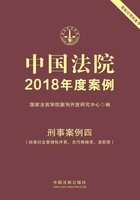These are the three first ordinances about the guardians of the law;as the work of legislation progresses, each law in turn will assign tothem their further duties. And now we may proceed in order to speak ofthe election of other officers; for generals have to be elected, andthese again must have their ministers, commanders, and colonels ofhorse, and commanders of brigades of foot, who would be more rightlycalled by their popular name of brigadiers. The guardians of the lawshall propose as generals men who are natives of the city, and aselection from the candidates proposed shall be made by those whoare or have been of the age for military service. And if one who isnot proposed is thought by somebody to be better than one who is,let him name whom he prefers in the place of whom, and make oaththat he is better, and propose him; and whichever of them isapproved by vote shall be admitted to the final selection; and thethree who have the greatest number of votes shall be appointedgenerals, and superintendents of military affairs, after previouslyundergoing a scrutiny, like the guardians of the law. And let thegenerals thus elected propose twelve brigadiers, one for each tribe;and there shall be a right of counterproposal as in the case of thegenerals, and the voting and decision shall take place in the sameway. Until the prytanes and council are elected, the guardians ofthe law shall convene the assembly in some holy spot which is suitableto the purpose, placing the hoplites by themselves, and the cavalry bythemselves, and in a third division all the rest of the army. Allare to vote for the generals [and for the colonels of horse], butthe brigadiers are to be voted for only by those who carry shields[i.e. the hoplites]. Let the body of cavalry choose phylarchs forthe generals; but captains of light troops, or archers, or any otherdivision of the army, shall be appointed by the generals forthemselves. There only remains the appointment of officers of cavalry:
these shall be proposed by the same persons who proposed the generals,and the election and the counter-proposal of other candidates shall bearranged in the same way as in the case of the generals, and let thecavalry vote and the infantry look on at the election; the two whohave the greatest number of votes shall be the leaders of all thehorse. Disputes about the voting may be raised once or twice; but ifthe dispute be raised a third time, the officers who preside at theseveral elections shall decide.
The council shall consist of 30 x 12 members-360 will be aconvenient number for sub-division. If we divide the whole number intofour parts of ninety each, we get ninety counsellors for each class.
First, all the citizens shall select candidates from the firstclass; they shall be compelled to vote, and, if they do not, shallbe duly fined. When the candidates have been selected, some oneshall mark them down; this shall be the business of the first day. Andon the following day, candidates shall be selected from the secondclass in the same manner and under the same conditions as on theprevious day; and on the third day a selection shall be made fromthe third class, at which every one may, if he likes, vote, and thethree first classes shall be compelled to vote; but the fourth andlowest class shall be under no compulsion, and any member of thisclass who does not vote shall not be punished. On the fourth daycandidates shall be selected from the fourth and smallest class;they shall be selected by all, but he who is of the fourth class shallsuffer no penalty, nor he who is of the third, if he be not willing tovote; but he who is of the first or second class, if he does notvote shall be punished;-he who is of the second class shall pay a fineof triple the amount which was exacted at first, and he who is ofthe first class quadruple. On the fifth day the rulers shall bring outthe names noted down, for all the citizens to see, and every man shallchoose out of them, under pain, if he do not, of suffering the firstpenalty; and when they have chosen out of each of the classes, theyshall choose one-half of them by lot, who shall undergo ascrutiny:-These are to form the council for the year.
The mode of election which has been described is in a mean betweenmonarchy and democracy, and such a mean the state ought always toobserve; for servants and masters never can be friends, nor good andbad, merely because they are declared to have equal privileges. For tounequals equals become unequal, if they are not harmonized by measure;and both by reason of equality, and by reason of inequality, citiesare filled with seditions. The old saying, that "equality makesfriendship," is happy and also true; but there is obscurity andconfusion as to what sort of equality is meant. For there are twoequalities which are called by the same name, but are in reality inmany ways almost the opposite of one another; one of them may beintroduced without difficulty, by any state or any legislator in thedistribution of honours: this is the rule of measure, weight, andnumber, which regulates and apportions them. But there is anotherequality, of a better and higher kind, which is not so easilyrecognized. This is the judgment of Zeus; among men it avails butlittle; that little, however, is the source of the greatest good toindividuals and states. For it gives to the greater more, and to theinferior less and in proportion to the nature of each; and, above all,greater honour always to the greater virtue, and to the less less; andto either in proportion to their respective measure of virtue andeducation. And this is justice, and is ever the true principle ofstates, at which we ought to aim, and according to this rule order thenew city which is now being founded, and any other city which may behereafter founded. To this the legislator should look-not to theinterests of tyrants one or more, or to the power of the people, butto justice always; which, as I was saying, the distribution of naturalequality among unequals in each case. But there are times at whichevery state is compelled to use the words, "just," "equal," in asecondary sense, in the hope of escaping in some degree from factions.















